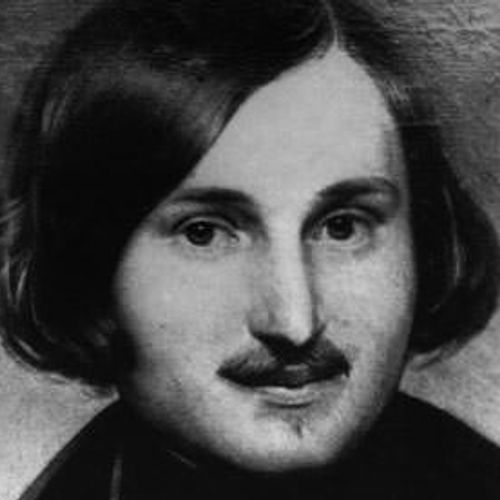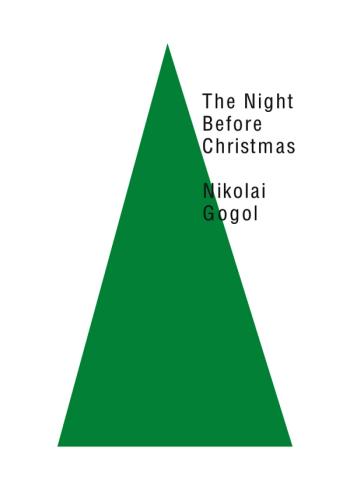Nikolai Gogol
Nikolai Gogol (1809–1852) was a novelist and political satirist. Born in Sorochintsi, Ukraine, he grew up on his parents’ country estate. In 1828 Gogol, an aspiring writer, settled in St. Petersburg, with a certificate attesting his right to “the rank of the 14th class.” To support himself Gogol worked minor governmental jobs and wrote occasionally for periodicals. Although he was interested in literature, he also dreamed of becoming an actor. However, the capital of Russia did not welcome him with open arms and his early narrative poem, Hans Küchelgarten (1829), turned out to be a disaster.
In the midst of a largely unsuccessful tenure as Professor of Medieval History at the University of St. Petersburg in 1834, and in the years that followed that tenure’s conclusion, Gogol wrote with great energy. Having met writer Alexander Pushkin during this time, his literary ambitions achieved new heights. The presentation, on 19 April 1836, of his comedy The Government Inspector (Revizor) was so successful that he finally came to believe in his literary vocation. The comedy, a violent satire of Russian provincial bureaucracy, was staged thanks only to the intervention of the emperor, Nicholas I.
From 1836 to 1848 Gogol lived abroad, traveling through Germany and Switzerland. He spent the winter of 1836–1837 in Paris, among Russian expatriates and Polish exiles, frequently meeting the Polish poets Adam Mickiewicz and Bohdan Zaleski. He eventually settled in Rome. For much of the twelve years from 1836 Gogol was in Italy. He studied art, read Italian literature and developed a passion for opera. He mingled with Russian and other visitors, and in 1838 met Count Ioseph Vielhorskiy, the 23-year-old son of the official who had brought Gogol’s Government Inspector to the attention of the emperor. Vielhorsky was travelling in hopes of curing his tuberculosis. Gogol became deeply attached to the young man and attended him in his illness, but in 1839 Vielhorsky died. Gogol left an account of this time in his Nights at the Villa.
Pushkin’s death produced a strong impression on Gogol. His principal work during years following Pushkin’s death was the satirical epic Dead Souls. Concurrently, he worked at other tasks – recast Taras Bulba and The Portrait, completed his second comedy, Marriage (Zhenitba), wrote the fragment Rome and his most famous short story, The Overcoat.
His work, a blend of Russian realism and a kind of enigmatic surrealism entirely his own (a surrealism demonstrated in the New Directions Pearl, The Night Before Christmas) left a permanent stamp on Russian literature, leading Dostoevsky to famously declare, “We all came out from under Gogol’s overcoat.”

